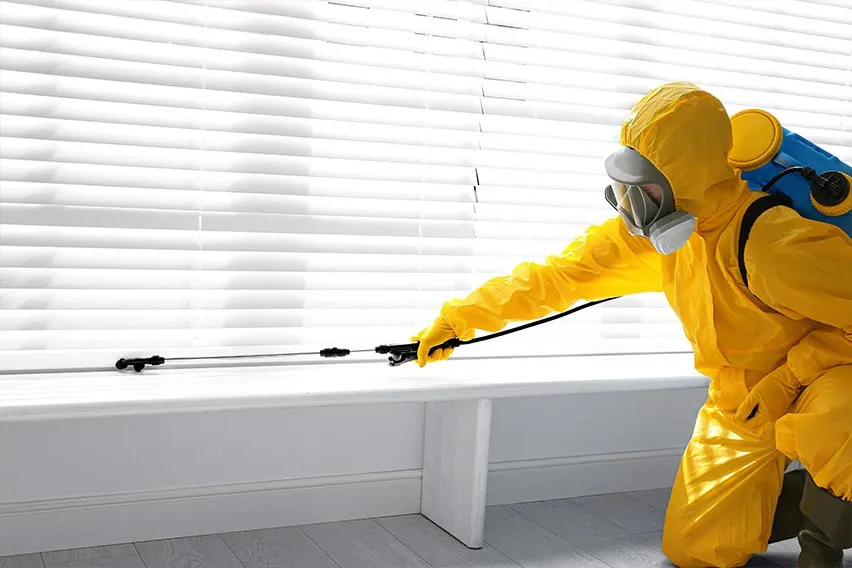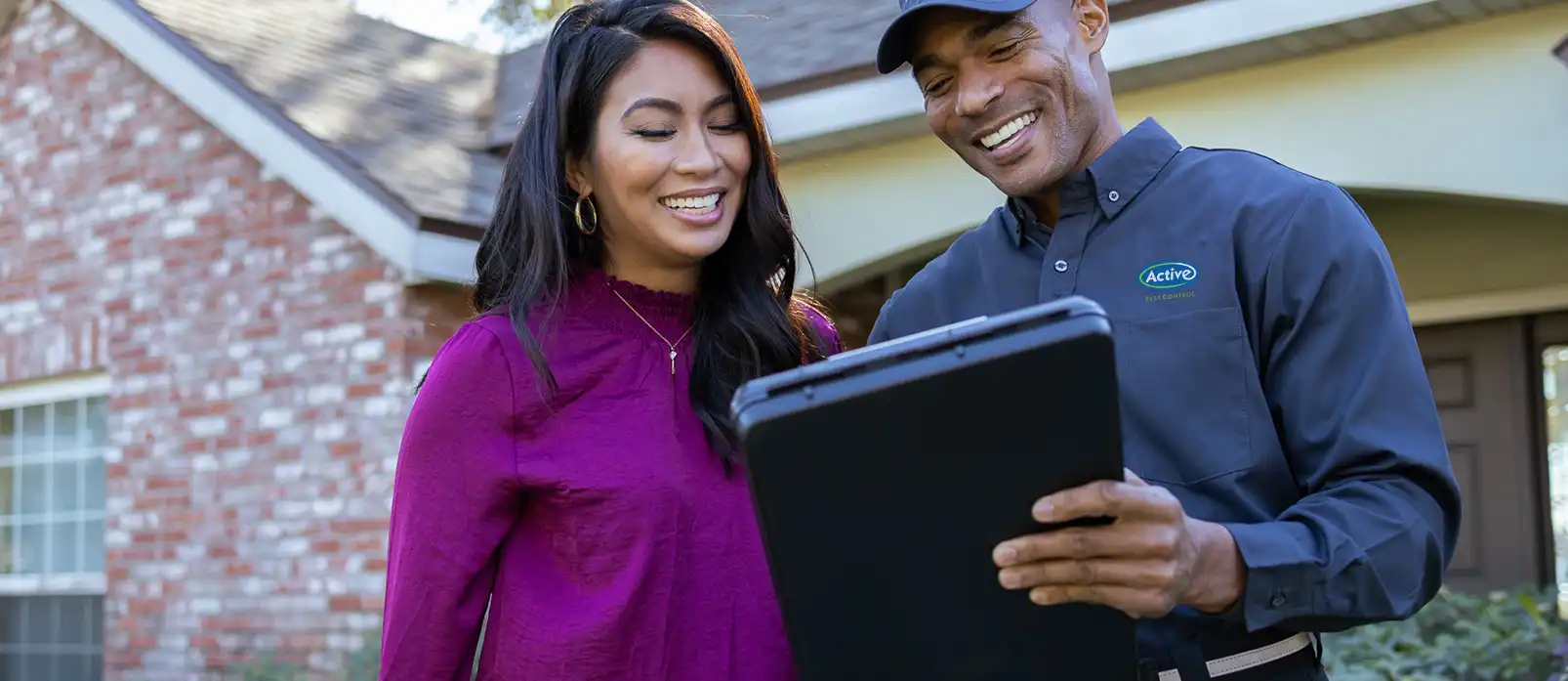Emergency Pest Control Homestead Support Available 24/7
Emergency Pest Control Homestead Support Available 24/7
Blog Article
Ultimate Overview to Bug Control: Kinds, advantages, and methods
Insect control is an essential aspect of preserving a secure and healthy and balanced setting, whether it be in residential, business, or farming setups. Recognizing the advantages, techniques, and types of bug control methods can significantly impact the performance of pest administration approaches.
Significance of Insect Control
Pest control plays an essential duty in preserving the health and safety and security of both property and industrial environments. By efficiently managing and eliminating companies, parasites and individuals can avoid the spread of conditions, secure property from damages, and make certain a tidy and sanitary living or working area.
Implementing routine bug control measures not only safeguards the physical health and wellness of individuals yet also contributes to their psychological health by developing a comfortable and secure atmosphere devoid of the annoyances and disturbances brought on by bugs. In business settings, insect control is vital for preserving a positive credibility, conforming with health and wellness and security laws, and guarding the well-being of clients and staff members. Overall, the importance of parasite control can not be overstated in maintaining the health and wellness, safety, and total top quality of life in both property and commercial areas.
Common Pest Control Techniques
Given the critical duty that pest control plays in protecting health and residential property, it is imperative to discover efficient methods for handling and getting rid of bugs. Typical bug control strategies encompass a variety of techniques customized to specific pest types. Physical methods entail making use of obstacles, webs, or traps to protect against bugs from going into or to record them. Organic control employs natural killers or microorganisms to control parasite populations, lowering the requirement for chemical interventions. Chemical control, such as pesticides, is extensively used yet calls for careful application to lessen ecological impact. Additionally, incorporated parasite management incorporates numerous methods to attain long-term bug reductions while reducing threats to human health and the environment. Social strategies, like correct waste monitoring and keeping sanitation, additionally play a vital duty in parasite prevention. Ultimately, one of the most effective pest control strategy often entails a combination of methods personalized to the specific pest types and the environment in which they live.

Organic Insect Control Approaches
When taking into consideration environmentally-friendly methods to taking care of pest populaces, natural bug control techniques supply a sustainable remedy. One typical natural bug control method is biological control, which involves presenting natural killers, parasites, or microorganisms to regulate pest populations.
Another effective natural bug control approach is the usage of organic pesticides obtained from all-natural resources such as minerals, plants, or microorganisms. These chemicals target details pests while minimizing injury to useful pests and the ecological community. Neem oil, for example, is a preferred natural pesticide that interferes with the development and recreation of different pests without triggering harm to various other organisms.
Cultural methods like crop turning, friend planting, and maintaining appropriate plant health likewise fall under organic bug control techniques. By producing a balanced community and lowering parasite vulnerabilities, these methods aid protect against insect invasions without the demand for unsafe chemicals. Organic insect control techniques not only secure the environment however likewise advertise lasting and lasting bug administration solutions.
Sorts Of Pest Control Services
Thinking about the varied methods available for handling pest populaces, a vital element to discover following is the variety of solutions provided under the umbrella of bug control. Insect control services can be broadly classified into 3 primary types: property insect control, industrial pest control, and integrated bug management (IPM)
Residential pest control services focus on managing and eradicating pests typically discovered in homes, such as ants, cockroaches, rodents, and termites. These services typically involve the application of safe yet effective therapies to secure the health and wellness of locals.

Integrated Pest Management (IPM) takes an alternative approach to pest control by integrating biological, cultural, physical, and chemical approaches to handle bug populations successfully while minimizing threats to human wellness and the atmosphere. IPM concentrates on long-lasting prevention and lasting bug monitoring techniques.
Integrated Parasite Management Technique
An integrative technique to pest administration, called Integrated Parasite Administration (IPM), integrates numerous methods to successfully control pest populaces while decreasing dangers to human health and wellness and the environment. Pest Control Homestead. IPM focuses on protecting against parasites with a combination of organic, social, physical, and chemical control techniques. By making use of an all natural technique, IPM intends to deal with the source of bug invasions instead than just treating the symptoms
One secret element of IPM is using organic controls, such as introducing all-natural killers or pathogens to take care of pest populations. This approach reduces the dependence on chemical pesticides, thus lowering the general ecological effect. Cultural controls include customizing the pest's environment to make it less welcoming, while physical controls consist of using catches or obstacles to exclude or capture bugs.
IPM also highlights surveillance and normal evaluation to examine parasite degrees properly and identify the most proper control approaches. By incorporating these diverse techniques, IPM supplies a effective and sustainable technique to pest monitoring that advertises long-term options while safeguarding human wellness and the environment.

Conclusion
To conclude, parasite control is essential for maintaining a risk-free and healthy environment. By making use of numerous strategies such as natural techniques and incorporated pest management, individuals can efficiently handle and avoid bug infestations. Different types of pest control solutions are readily available to cater to specific demands and preferences. Overall, implementing correct bug control steps can assist safeguard property, plants, and human read this article health from the unsafe impacts of pests.
Understanding the benefits, methods, and kinds of pest control techniques can dramatically impact the efficiency of pest administration techniques. Usual bug control methods encompass a variety of methods tailored to specific insect types. One common natural bug control approach is biological control, which includes introducing all-natural killers, parasites, or virus to regulate insect populations.An integrative technique to pest monitoring, recognized as Integrated Parasite Monitoring (IPM), incorporates numerous approaches to efficiently article source control pest populations while decreasing threats to human wellness and the setting. Cultural controls include modifying the bug's environment to make it less congenial, while physical controls consist of the use of obstacles or traps to omit or catch parasites.
Report this page